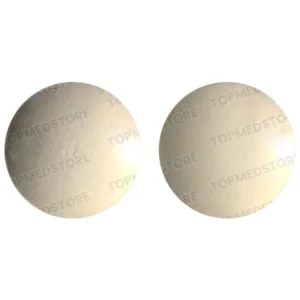Showing the single result
Levocarnitine is a medicinal drug that facilitates long-chain fatty acid entry into mitochondria, delivering substrate for oxidation and subsequent energy production. This fatty acid is utilized as an energy substrate in all tissues except the brain. Carnitine is not an essential amino acid but it can be synthesized in the body. This component has been described as a vitamin, an amino acid, or a metabimin. Like the B vitamins, it contains nitrogen and is very soluble in water, and to some researchers, carnitine is a vitamin.
Class of Drugs – Supplement
Molecular Formula – C7H15NO3
Molecular Weight – 161.2 g/mol
Working: This active ingredient is a naturally occurring substance that the cells of mammals need to produce energy. Levocarnitine is used to treat carnitine deficiency, which is a small protein that binds to and helps transport fatty acids into the mitochondria, the site of energy production within cells. In the mitochondria, carnitine binds to and removes toxins from the cells.
Carnitine deficiency prevents the body from using certain fats for energy and causes a variety of symptoms like severe brain dysfunction, weakened and enlarged heart, muscle weakness, confusion, vomiting, and low blood sugar. This medicine corrects low carnitine levels and reverses symptoms of carnitine deficiency.
Uses: This active component is used as a diet supplement indicated to prevent and treat low blood levels of carnitine. Carnitine is a substance made in the body from meat and dairy products that helps the body use certain chemicals for energy and to keep you in good health. Carnitine comes in 2 forms, this medication, and D-carnitine.
The form of Levocarnitine taken orally is not recommended for treating people on dialysis due to serious kidney disease.
Popular Brands and Dosages: It is used as the main active component in a popular brand medicine as given below:
- Carnitor: 330 mg
It is not recommended to use this drug to treat serious carnitine deficiency unless prescribed by the doctor.

